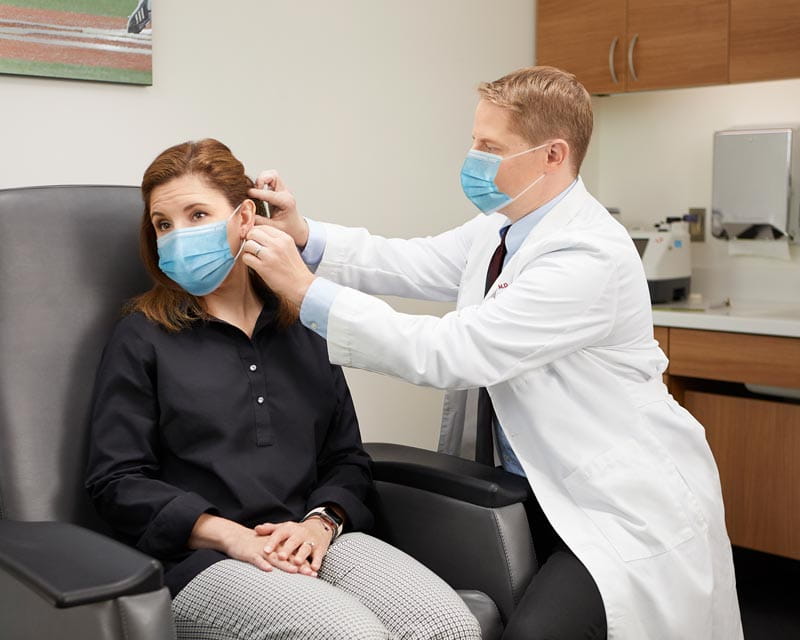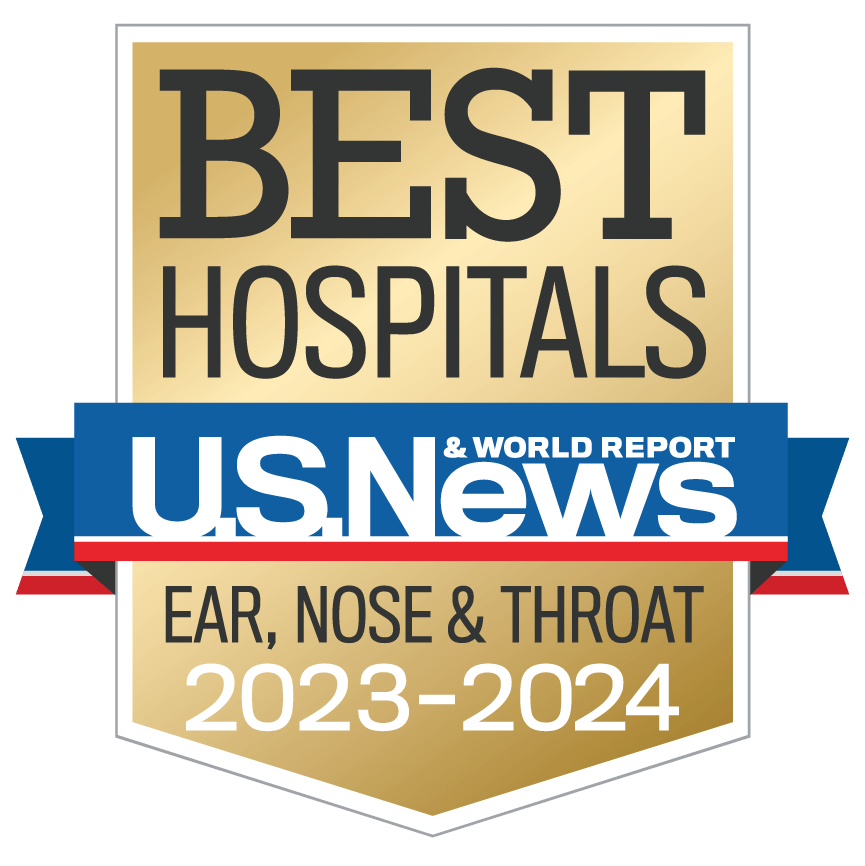 Acquired hearing loss is becoming increasingly common as our country's aging population continues to grow. When people develop moderate to profound hearing loss, they often feel lonely, depressed and socially isolated. Cochlear implantation can help these patients regain hearing, optimize their day-to-day function and improve their quality of life.
Acquired hearing loss is becoming increasingly common as our country's aging population continues to grow. When people develop moderate to profound hearing loss, they often feel lonely, depressed and socially isolated. Cochlear implantation can help these patients regain hearing, optimize their day-to-day function and improve their quality of life.
Unfortunately, the cochlear implant device doesn't work well for everyone. Otolaryngologists report unexplained variability in speech recognition and perceptual learning after cochlear implantation and are unable to predict how well someone will do with a cochlear implant prior to receiving the device.
This puzzling mystery is the subject of a new study funded by a National Institutes of Health (NIH) R01 grant.
The study’s principal investigator is Aaron Moberly, MD, an associate professor in the Department of Otolaryngology – Head and Neck Surgery at The Ohio State University College of Medicine and director of the Adult Cochlear Implant Program at The Ohio State University Wexner Medical Center. A multidisciplinary team of researchers will use the funding to understand why cochlear implants help certain patients hear and understand speech more clearly while the devices fail to help others to the same extent.
The study will follow adult patients before surgery through two years after surgery.
Experts unite to gain a better understanding of cochlear implant outcomes
The objective of this new study is to fill the knowledge gap by further researching the variability in speech recognition outcomes and perceptual learning after cochlear implantation. The five-year study will unite multidisciplinary experts to:
- determine the degree to which preoperative sensory, language and cognitive processes predict cochlear implant outcomes
- understand whether the interactions between other sensory processes and cognitive information processing affect a patient’s speech recognition outcomes
- understand the trajectory of perceptual learning in speech recognition during the first two years of cognitive implant use
“Different teams across the world have tried to tackle bits of this problem,” Moberly says, noting that most work has focused on sensory processing, behavioral or physiological measures of how the implant stimulates the hearing nerve and the brain. “This project is unique because it will tie together sensory, cognitive and language processes to develop a more comprehensive assessment of these functions.”
The study will leverage the expertise of its co-investigators and collaborators from Ohio State, who include:
- Aaron Moberly, MD, a neurotologist who specializes in cochlear implant surgery
- Terrin Tamati, PhD, a research scientist, linguist and cognitive hearing scientist who has developed several novel language and cognitive assessments
- Kara Vasil, AuD, a clinical and research audiologist who will serve as project manager
- Derek Houston, PhD, and Irina Castellanos, PhD, research faculty who provide expertise in how cognitive functions contribute to cochlear implant outcomes.
- Shuman He, MD, PhD, a research faculty member with expertise in electrophysiology who'll measure how well the auditory nerve responds to stimulation from the implant
- Oliver Adunka, MD, a neurotologist and expert in testing the health of the ear using intraoperative electrophysiological measures.
- Xia Ning, PhD, a faculty member with background in computer science and bioinformatics who will provide expertise in statistical modeling and applying artificial intelligence approaches to analyze data.
“Using the team’s diversity to advance knowledge in a real clinical population for a real clinical problem is exciting,” Moberly says. “It demonstrates the value of team science, which will increasingly impact the future of medicine.”
Moberly hopes the team will uncover the driving forces behind some of the problems that underlie less-than-ideal cochlear implant outcomes. Once defined, clinicians can use the deficits in targeted rehabilitation.
“Hearing loss affects people in many ways, from their interactions with family and friends to their ability to function at work,” Moberly says.
That notion is what motivates this research team to keep pushing the boundaries of science.

2024 Year in Review
See how Ohio State is shaping the field of Otolaryngology – Head and Neck Surgery.

